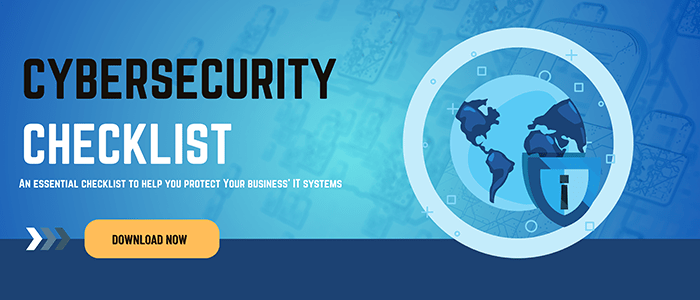Office 365 And What It Can Do For Your Business

Mike: It is Tech Tuesday. We’re on power today by Portsmouth Computer Group, with convenient locations in Portsmouth and Dover, and now in Manchester and Portland, Maine. You can find out more, PCG IT for world-class IT service and customer support, go to pcgit.com. And every Tuesday morning around this time, 7:40 or so, we’re joined by Dave Hodgdon and Steve Ripper with a computer technological tip for you.
Today we want to talk a little bit about Office 365, some of the names and services of Office 365. It’s probably more important now than ever before. Let’s talk about Microsoft 365. Steve, how new is this a program and platform?
About Office 365
Steve Ripper: Yeah, so it’s been around for a couple of years and the big thing now, Mike, is that they’ve done a name change. And so the name change is really helping out, because the names were a little too similar before, Mike. We had this Essentials and then we had Premium and then we had Business, so Business Essentials. It just got really confusing. So they did a product renaming. So that’s really helped in terms of talking about it. The Essentials product, the Office 365 Essentials became Office 365 Basic. Office 365 Premium became Office 365 Standard. And then the Business just became the apps. So in terms of talking about it, it’s gotten easier. We can now say you have the basic package, which is just a mailbox, or we can say you have the standard package, which is the Office install and a mailbox, or we can just say you have the apps, and you’re just getting the application like Office. So that really helps in terms of discussing it, and talking about it, and figuring out where you’re going to go with it.
Dave Hodgdon: It’s really confusing, Mike. They use the word Office 365 for the title, but for Office 365 Essentials, you didn’t get Office. You just got an email. So I think they did do a good job by naming it, knowing you’re getting what you’re getting.
Mike: Well, I know in the past, when Microsoft ever came out with Office suites, there was always the professional model. There was the college and student workplace model. And you have to really dive inside the lines to figure out if you were getting the mail program or not. Most of the time you did not get the mail program and you didn’t know why. It was a little confusing for regular consumers, not for you guys because you guys are the experts in this business. But for consumers, I thought it was confusing all along for any of their Office products. So it’s nice to see they’re combining things and making things a little easier.
Dave: Yeah, they put it all together, Mike, which is good because you are right. In the old days when you had the Office Standard, the Office Premium, you didn’t know if he got Access or Publisher. Now with the Microsoft 365 apps, it’s all included.
Features of Microsoft 365 Business Suite
Mike: Yeah. So, Dave, is this the go to product now? What are some of the key features of this Microsoft 365 email business suite, for instance?
Dave: Why? I think the 365, why it’s a good solution for business, you pay for what you need. So as you add employees that need email, you add what you need. A lot of times in the old days, you bought a server, you bought a lot of licensing. You’re not sure what you had for staff. So you pay for what you need. Another key feature, it’s always on. The internet might not be on at your business at your home, but it’s always on at Microsoft and you can hit it with your phone. You get a huge size mailbox. In the old days, they limited you to X size a box. They give you a 50 gig mailbox, which is ginormous. And there are some users, I won’t mention by name, might have one larger, but you can pay a little extra money and get a little bit more. It has the built in spam protection, which is critical. And another key thing that’s going on with today’s security and especially with all the cyber stuff going on right now, you have the ability to email encryption, which I think most people know what it is now, the ability to encrypt that email so the recipient knows they’re getting it.
Mike: So, it comes with a 50 gigabyte mailbox size. Back in the old days, they’d give you a small mailbox, then you’d have to pay a lot of extra money for a lot of extra space and storage. Right?
Steve: Yes.
Dave: Well, a lot of it was the limit of what Microsoft would give you in the old days. What’d it used to be, two gig, Steve, on the old mailbox?
Steve: Yeah. So Office 365 came out of exchange servers. So a lot of companies would have their own mail server, which is a Microsoft product, but it would be in their facility. And then you did some tight controls as an IT person managing it. You did some tight controls on terms of the size of the mailbox, whether it was two gigs or more. But now Office 365 really opens it up. They can scale. We use that word scaling in our industry quite a bit. They can scale it up so that we can say everybody gets 50 gig mailboxes because they have very large data centers across the country. They can just handle it for everybody.
Mike: Well, you talk about two gigabytes. That sounds like nothing nowadays. Two gigabytes, nothing.
Steve: Yeah.
Dave: Some people’s files are two gigabytes. Steve, can you elaborate on the archiving? Which I think with everyone’s mailboxing and how things go with compliance, you talk a little about archiving.
Steve: Yeah. So archiving is the point where if your mailbox does get too big. So we customers out there who are approaching 48, 50 gigabytes. So they’re getting to the limit of that mailbox. And there’s a bunch of things that we can do. Archiving is a service that we can turn on within the system that will look at your mailbox and say everything from four years and back, we’re going to put over here and that over here, generally a second mailbox that is attached. And we’re going to take all those four years out. So you’re getting a couple of things happening there.
A, you’re still keeping all that data, right? Because most people are like, “That’s all my mail. I gotta have it. I know where everything is.” Most hoarders, you have a ton of stuff, but you also know where all your ton of stuff is. Right? So people with their email boxes are the same way. So the service is going to pull all that mail out from four years ago. And so the mailbox is going to run better, but you’re still going to have access to that data. So those are the key points there.
How Office 365 Promotes Productivity
Mike: So I wanted to ask you too, in this day and age where people are all getting online with the families and group meetings and things like that, there must be some key features on Microsoft 365 where you have some video conferencing as well, I would imagine.
Steve: Yeah. So that’s handled through Teams and that’s really if we were to look at this as a broader topic, Mike, the Office 365 for us now and most customers out there has become like a gateway. Microsoft has done a really good job of tying the Office 365 as a gateway or a starting point for everything else that you might want to do. So you’re in Office 365. Everyone gets there because they want a mailbox, because email is so important. But then you can do Teams for your video, and you can do OneDrive for where your files go. And then ultimately, if you have an Office 365 account, then you can start to just, by adding some licensing, you can move into Azure for where your servers are. So it really simplifies. Right, Dave? It simplifies the conversation.
When you’re trying to talk with the customer, it used to be really confusing. And every time we’d have a meeting with a customer, it would be a good half an hour of just determining what it is, where we’re going to go with this, this, this, and this. And the Office 365 really sharpened the conversation.
Dave: Yeah. It really simplified the launching pad where everything happens. So once you’re in the 365, most people know how to use the Office suite. And within Teams, you can attach a document which is an Office document or share. I think just having the ability to use your calendar and then it all ties back to your phone. It just simplifies how you have to do your productivity during the day, Mike.
Mike: And Dave, it allows you to store things obviously in the cloud, right?
Dave: Oh, absolutely. That’s where all this data is stored. 365, the data is in the cloud. And one other key point we want to make sure our listeners know is Microsoft is backing up the data, but they don’t guarantee it. Kind of like the 30 day look back window, if you let a person go to something. But we always recommend, especially for compliance, to add additional backup. Because say you’re looking for that email and you really need it, it’s not there, having that backup is critical.
Mike: Let me ask you this. Can Portsmouth Computer Group put things like 365 on mobile devices like phones, stuff like that if they need it.
Steve: Oh yeah. We get calls all the time for how do I get this on. So Microsoft’s Office 365 is really great for being across several platforms. So you might have your laptop and you have your Outlook and your mailbox, and your OneDrive and your files. And then in your pocket you got your phone, and that also has the Outlook app and that has the OneDrive app. So you can see your files. You can get to your email. You can do Teams. Teams is probably the hottest product in Office 365’s lineup right now, Mike, because of all the things that are going on. Teams is the app that allows companies to talk to each other from their remote location. So it has the chat. It has the files built in. It has video conferencing. And so it has all of those functions and that’s absolutely the hottest app that’s going on right now with the Office 365.
Dave: Mike, just to elaborate. When I used Teams when I was in the office, I might’ve been using it 15 to 45 minutes a day.
Mike: Yeah, now?
Dave: I’m on about eight hours a day because I’m talking to all the employees, talking to our clients, and sharing documents. So I think people are starting to realize more people will be working remotely. They’re comfortable, we’re seeing some productivity gains. So I think this is going to be, there’s some positive stuff that will come out of this. But as you asked the question about using your phone, how we help our clients through the 365. You have a customer come or go where you [inaudible] delete those accounts. We’re able to set up a distribution list. We’re able to help you with your Teams account and train you how to use the webcam. A lot of people don’t know how to set that up. So we’re able to login and show them how to do that. So it really helps us help them have a better experience.
Mike: All right. All right. Microsoft 365, the services, the new names, probably more important now than ever before. Final words, Dave, today.
Dave: Just everyone stays safe. We’re around the corner. I think the warmer days are here. And for PCG, if you have any requirements at all within your 365, for any help with your Teams, with your OneDrive, call the 365 specialists. We’re here to help you. Give us a ring at a 431-4121.
Mike: All right. Steve Ripper, Dave Hodgdon from Portsmouth Computer Group. pcgit.com. The guy’s all part of Tech Tuesday. Always great to talk to you. Stay safe. We’ll talk to you again next week, my friends. Thanks for being here.




